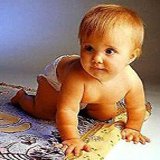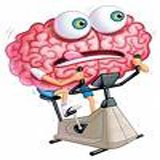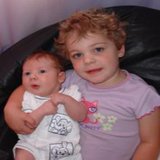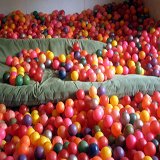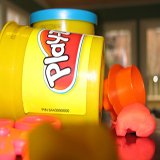Questions and Answers about Brain Gym Exercises
Looking for more questions and answers about brain gym exercises for kids?
Here you will find exactly that.

Don't think that you are asking funny questions. The questions and answers about brain gym exercises presented here are regarded as expert advice from real parents.
Please use this as a reference and share your insight and experience on brain gym exercises or memory exercises at how to raise smart kids.
Questions and Answers about Brain Gym Exercises
- What type of jigsaw should my 18-month-old toddler be able to manage?
Although her learning and cognition skills have improved, she still find jigsaws and similar puzzles very challenging.
The typical child of this age successfully tackles wooden board games (inset boards) with around four or five wooden pieces. However, she'll probably need practice before she is able to place all the pieces in the right place.
- My toddler is impatient with learning development. If she can't solve the puzzle, she has a temper tantrum. What should I do?
Her desire to learn is so strong that she can't wait, and hence her rage when the solution isn't immediately available.
Calm her first and then sit with her and teach her how to solve the problem.
Finally, ask her to complete the activity under your supervision.
- Do children of age 19 - 21 months understand about colors?
Color awareness is present at birth, and develops from that moment on.
At this age, though, your child won't be able to name colors or even to sort different colors into groups.
Yet he appreciates the different visual characteristics of different colors.
Help this process along by naming the color of his clothes as you dress him.
- Is there an optimum amount of time my child should spend watching television daily?
There's no ideal amount of television because much depends on the type of program he watches.
Whatever the amount of time your growing child spends watching television, make sure the programs are suitable for that age group.
He shouldn't just watch the same program over and over again. Also, television shouldn't crowd out other activities.
You can use television programs to enhance cognition and language by talking to him about what he has watched.
- Why is it that my 2-year-old remembers some things from months ago but not others?
Long term memory are easier to retrieve when they are vivid, meaningful and exciting.
That's why your child remembers her friend's party that she went to several months ago and yet can't recall what she watched on television yesterday.
The more stimulating the experience, the more likely it is that her memory alpha of it will endure.
- Is it true that humor and intelligence are connected?
Every child is capable of humor and laughter, irrespective of her learning development. The fact that one child laughs more than another is due to personality differences, not intellectual differences.
However, some verbal jokes involve a sophisticated understanding of language and cognition; therefore a child has to have achieved that level of child brain development in order to appreciate the humor.
- Is it true that the youngest child in a family usually possesses more creative though processes than the oldest?
There is evidence that second-born children and youngest children are often more creative thinkers than their first-born sibling.
Whatever the explanation for this, you may find that your youngest thinks more flexibly and develops more innovative solutions to problems than his older brother or sister.
- Does the fact that my child needs regular reminders about behavior mean that he doesn't understand the rules or that he chooses to ignore them?
He certainly knows the meaning of NO and probably understands more rules than you think.
But his ability to use the information he has learned is affected by many factors, including his level of excitement and child development attention span.
He easily forgets what he has learned if he becomes overwhelmed by other distractions.
- Does progress in learning slow down as she approaches the age of 3?
No. Your child's rate of learning development actually increases because she can think about concepts that were meaningless to her before.
For instance, she starts to grasp the meaning of numbers and the significance of size and time.
She may also recognize that letters and words have shapes, which is an early stage of learning to read.
- When my 3-year-old saw me roll a small ball of clay into a long thin piece, she insisted it now contained more clay. Why does she think in this way?
Your child doesn't understand that the amount of clay remains the same no matter what its shape.
She does notice that the thin shape is longer, however, and she mistakenly concludes that it must therefore have more clay in it.
More Questions and Answers about Brain Gym Exercises?
Let me know what other questions and answers about brain gym exercises for children you would like to share with others on how to raise smart kids.
Find It!
Can't remember where you read something specific? Just type in your search term in the box below and your specific topic will be returned to you instantly.





